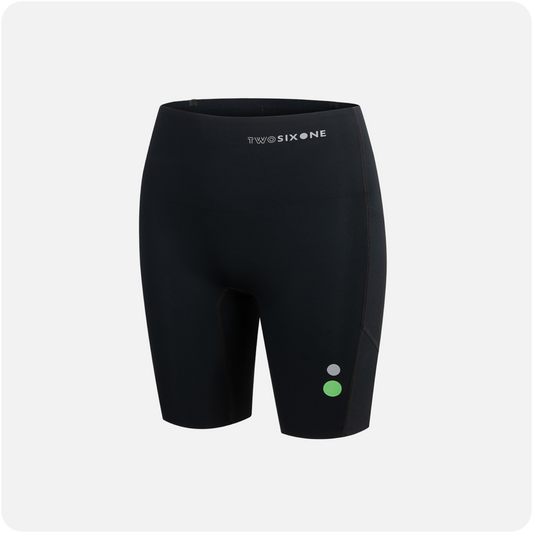EP 9 - Marie-José Pérec: The Olympic Gazelle
Thirty years ago, the Olympic track discovered a gazelle: Marie-José Perec. But before becoming the legend we know today, Marie-José had to face her share of challenges, proving once again that obstacles are made to be overcome.
Marie-Jo was born in 1968 in Guadeloupe.
Her discovery of sprinting as a teenager was a turning point. She is gifted, with exceptional aptitude, and yet She's not really interested in sports. It was a meeting with a PE teacher that introduced her to athletics. Anne-Marie Soual was the first to notice Marie-José Pérec's athletic abilities. During a race, she was "blown away" by the young girl's performance. She entered her into a championship. Marie-Jo said yes without really seeing the point. She was already shining, without any preparation!
She had to leave her native island for mainland France to pursue her athletics dream, a decision that marked the beginning of her rise to success. After a brief stint at INSEP, she stopped everything. She returned a few years later, with the success we all know.
Resounding victories
Marie-José Pérec, above all, has a track record that commands respect.
First gold medal in 1989, in the 200m at the European Championship. Her speed and elegance earned her the nickname "the Gazelle."
Olympic gold followed.
The queen of French sprinting is the second French athlete, after Colette Besson, to have won the gold medal at the Olympic Games in the 400 meters. It was in Barcelona in 1992 , 24 years after the feat of her elder sister at the Mexico Olympics. Victory followed by her historic double in the 200 meters and 400 meters at the Atlanta Games in 1996 which sealed her status as an athletics legend!
Marie-Jo is the only French woman to have won three Olympic athletics titles. Her Olympic record of 48.25 seconds in the 400m, set in 1996, remains unbeaten.
Breaking down barriers
However, Perec's journey has not been without its challenges. She has faced racism as a Black woman in a male-dominated field marked by discrimination.
There are people who have said things to me like 'Dirty Black woman, go home.' For me, winning was necessary, and losing was death (...) It gives you more strength," she concludes to her interlocutor. On certain occasions, I was a Black woman who had no business being there, with a saleswoman or a salesman in the store...
After confronting racism and proving her worth in a world where she was sometimes perceived as an outsider, she became involved with young athletes.
Why do we love Marie-Jo?
She broke barriers. She remains humble and committed despite her global fame. For her resilience in the face of adversity , we think of her escape to Sydney. This episode in her life reveals a vulnerability and resilience in the face of pressure.
Finally, Marie-Jo is an emblematic figure of France and the Antilles, proudly carrying the colours of her country and her native region on the international stage.
In a recent interview with Libération, Marie-José Pérec declared: "I tell the girls that they have to break through the ceiling."
Today, if you ask her if she still runs, she replies:
I only accepted recreational sports very late. Before that, from my retirement until 2013, I didn't do any sports. I was running after my son, that's all... I didn't want to make an effort for nothing. Then, slowly, I started to enjoy it again. Now, I run from time to time: in November, I did 100 kilometers. In December, 10. In any case, I run. 😅
A little anecdote: before retiring from sporting life, she says that her German coach asked her to repeat this phrase every day at the start of each session: I will be on the podium!
This is food for thought: visualize yourself on the podium to go further 💪🏻.
Marie-José Pérec, 200 meter final, Atlanta, 1996 © MILLEREAU/DPPI-SIPA/FAUGERE Report number: 00409067_000008








